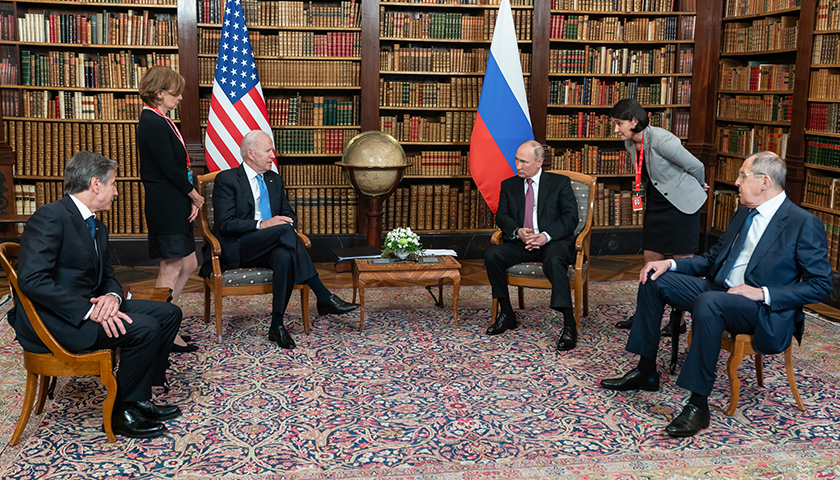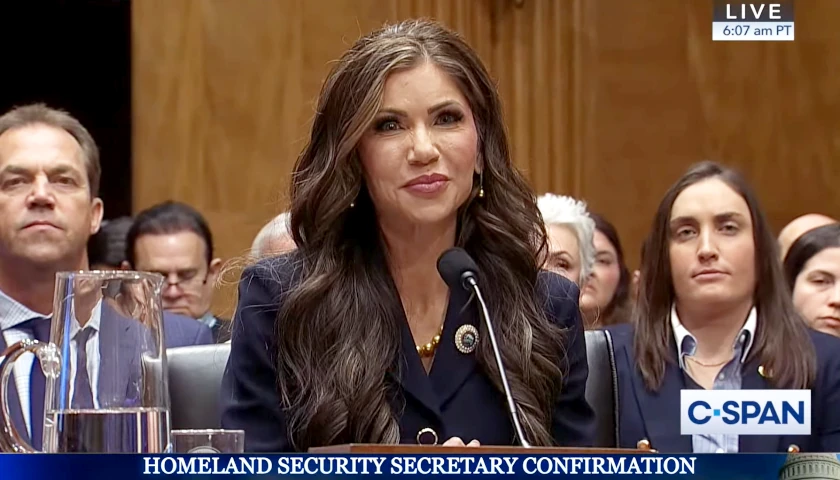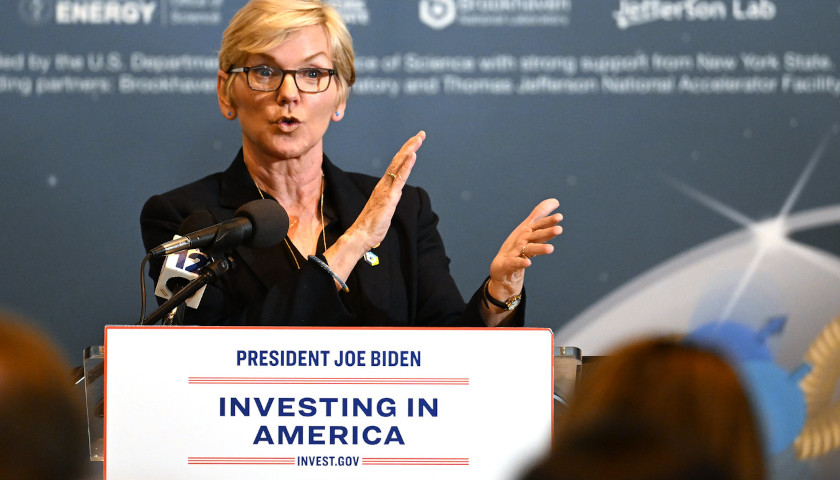by Conrad Black
The crisis on the Russian-Ukrainian border has been a surreal spectacle for some weeks. This is not how invasions occur and wars begin. The potential aggressor does not mass large forces on the border of a possible target country before full international view and issue continuous statements to the international media about its intentions. And the senior military officials of great powers do not—as Chairman of the U.S. Joint Chiefs of Staff General Mark Milley ( leading man of the Afghan debacle) and some of his colleagues have done—publicly speculate on the psychology and likely intentions of the leader of the country implicitly threatening to start a war. Whatever Milley’s talents may be, there is no reason to believe that mind-reading is among them. It is, in any case, not part of his brief to give regular bulletins on what he thinks Russian President Vladimir Putin’s intentions may be.
This is Gilbert and Sullivan warmongering.
If Putin intended to invade Ukraine he would do so as he did with Crimea in 2008 and attempt to achieve some element of surprise. Instead he has made an international public spectacle of amassing six to 10 divisions on the Ukraine border, which every informed person in the world knows is inadequate to defeat and dominate a resistant country of 40 million people. This is theater: Russia pretends to threaten to be going to war; America pretends to react strongly, the NATO allies send forces to neighboring countries that are not under threat while asserting that they will on no account deploy forces into Ukraine, but will apply sanctions to Russia; some even propose preemptive sanctions against Russia although it has not actually done anything objectionable. (Russia could never be more than moderately inconvenienced by sanctions, especially if China and Germany ignore them.)
The president of Ukraine says a Russian invasion is not imminent.
Peculiar behavior is not confined to the Russians. Germany—which by most non-military measurements is Europe’s most powerful country and one which, it need hardly be emphasized, has a formidable military tradition—is sheltering behind a law that it can easily circumvent when it wishes to by which it will not ship even the armaments of self-defense to a war zone. Instead it is shipping nonmilitary supplies and helmets, which caused the mayor of Kiev, Ukraine’s capital, to exclaim last week that he wondered “if pillows will be next.” The United States, UK, France, and Canada among others are sending serious defensive equipment to Ukraine, and if Putin were intent on an invasion, he would have struck a month ago and saved Russia a lot of casualties.
The real root of this problem (and of Russian minorities in other former Soviet republics and of the status of those republics generally) is that Russia has never accepted or pretended to accept the secession of those states from the Soviet Union and their emergence as completely sovereign countries free of any Russian influence. That fuse still burns and the Western Alliance, which was formed to contain the Soviet Union, was always going to have to deal with this problem. This is the issue; almost all of what we are seeing is posturing and window-dressing.
Of course, Putin is not going to invade, though as Joe Biden ineptly allowed at his infamous press conference two weeks ago, there could be incursions. Putin is trying to take advantage of the apparent irresolution of this administration to establish that Ukraine will not be admitted to NATO. But this too is nonsense, as no such admission is contemplated and Ukraine is not yet adequate at self-government to be eligible for admission to NATO or the European Union.
Putin also knows that it is preposterous for Russia, which was decisively defeated in the Cold War, to claim to have a veto right over what countries are admitted to NATO, and he knows that his claims of western aggression are bunk, as NATO is an entirely defensive alliance and has never initiated, nor do its articles permit initiation of, aggressive action. Biden knows that Russia is not likely to invade, and he may reason that the reiteration of the NATO position that Ukraine is not now acceptable in NATO can be seized by Putin as a tactical victory, while Biden can claim to have been a forceful defender of the national and alliance interest and of the rights of Ukraine as an underdog nation struggling to become a functioning national democracy, as the tension subsides.
Putin may even be astute enough to know that this is all that could raise Biden’s standing among his countrymen and prevent the landslide in favor of the harder-line Trump Republicans, with or without Trump himself. He may even be astute enough to know that an appreciable number of Republicans could embrace, and some audibly have embraced, paleoconservative Republican isolationism, and have attacked any concept of helping defend Ukraine as asinine George W. Bush Iraq-style open-ended warmongering. If these people prevailed, and Putin intimidated Ukraine, Georgia, and other former Soviet republics, as he has virtually subsumed Belarus and Kazakhstan, the Soviet Union would be reconstructed, unencumbered by the nonsense of communism, and Russia would be a superpower again, with China and the United States. The geo-politicians of Fox News, who are usually penetrating in their analyses of domestic matters, should reflect upon their judgment. The Cold War was the greatest and most bloodless strategic victory in the history of the world. Don’t give it back. No one is suggesting using U.S. ground forces against Russia in Central Europe.
The long-term play here is to expand the Western World. During World War II, the Western World of Judeo-Christian or similar values, democracy, and a market economy, were largely under the Nazi and Stalinist jackboots in Europe, and had not penetrated beyond Australia in the Pacific. The West has now come to include Japan, South Korea, and much of Australasia, is progressing steadily in the vast Indian subcontinent, has made huge gains in Latin America, and in Europe in just the last 30 years has advanced in great and peaceful steps from the East German border a hundred miles east of the Rhine, to the western, and then to the eastern, borders of Poland: about 700 miles.
The great geopolitical question now is Russia. It has never had one day of good government and only a few of its leaders have been competent, often the most authoritarian, such as Peter the Great and Stalin. It is an economic failure and has a smaller GDP than Canada (which only has a quarter of Russia’s population), but it is a distinguished civilization and an indomitable people that belongs in the West, though its culture has been fought over for centuries between the Western emulators like Peter the Great and the nativists like Tolstoy and Solzhenitsyn.
If Russia can be granted an unvexed relationship with the Russian minorities in neighboring countries, even if some borders have to be redrawn, conciliated respectfully but deterred effectively from traditional Russian expansionism and attracted instead by solidarity with the West in the front rank of western nations with such eminent comparative newcomers as Japan, India, and even Germany, the preeminence of the West, as long as we act sensibly and deserve the leadership of the world, will be relatively secure, and we can make arrangements with China from a position of strength.
Of course we cannot tolerate the subjugation of one European country by another with an illegal use of force. Of course we must show appropriate respect for the immense, 10 time-zone state of Russia. First we must get a post-USSR settlement with Russia and its former fellow Soviet republics, and then we must have a cooperative arrangement between Russia and the West. What is going on now is a farce, but also a time bomb, and because of the players and principles involved, if not managed carefully, like all time bombs, it could blow up.
– – –
Conrad Black has been one of Canada’s most prominent financiers for 40 years, and was one of the leading newspaper publishers in the world as owner of the British telegraph newspapers, the Fairfax newspapers in Australia, the Jerusalem Post, Chicago Sun-Times and scores of smaller newspapers in the U.S., and most of the daily newspapers in Canada. He is the author of authoritative biographies of Franklin D. Roosevelt and Richard Nixon, one-volume histories of the United States and Canada, and most recently of Donald J. Trump: A President Like No Other. He is a member of the British House of Lords as Lord Black of Crossharbour.





